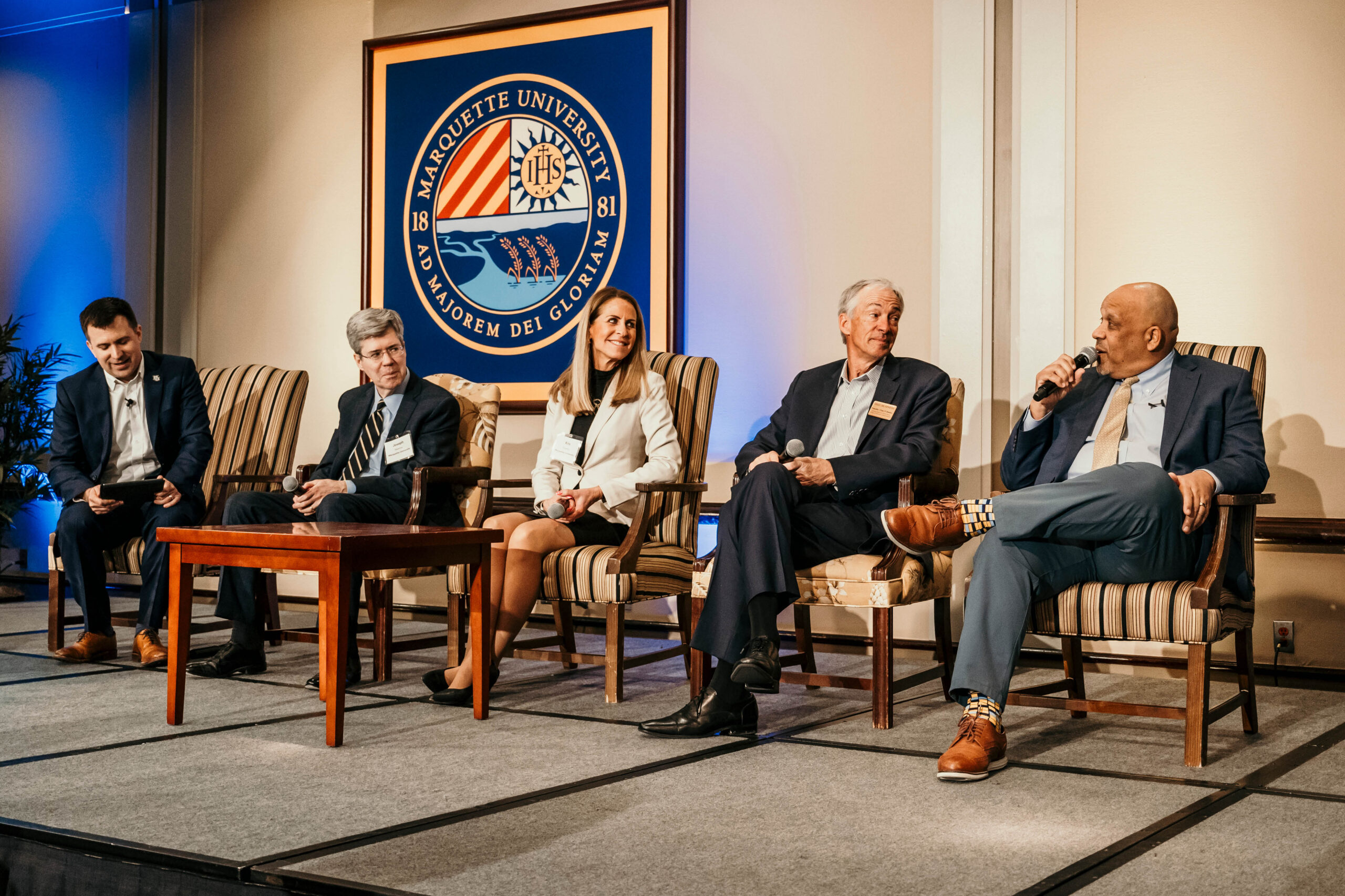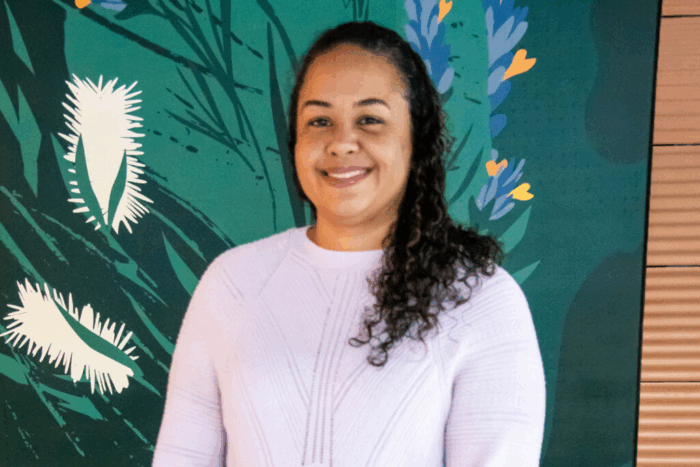There are many American colleges and universities that have a real estate degree program. None of them, however, offer anything quite like the Vieth Institute for Real Estate Leadership.
“We believe there are two major trends impacting higher education: applied learning and interdisciplinary experiences,” says Vieth Institute Director Andy Hunt. “The best way to break down the silos necessary to deliver a distinctive, high-level real estate education is to launch an interdisciplinary institute to that structurally binds multiple colleges.”
Founded in May 2024 and announced at the most recent Marquette Real Estate Strategies Conference, the Vieth Institute combines the resources and expertise of the colleges of engineering, business administration and law to deliver comprehensive real estate education. Students in programs supported by the institute learn everything from financing to construction to the essentials of property law, then put that knowledge into practice through ventures such as the Real Estate Asset Program, in which students make limited partner investments in investment properties around the country.
The goal is to give students experience in all aspects of the industry and make them as attractive as possible to employers upon graduation.
Marquette alumni Perry and Sheila Vieth, Bus Ad ‘79 and Arts ‘80, made a major gift to launch the institute. Perry Vieth, the CEO and founder of real estate investment fund Ceres Partners LLC, wanted Marquette’s real estate program to mirror the way that deals are made in the real world: with architects, developers, financiers and lawyers in constant collaboration. The solution was to build the first interdisciplinary undergraduate institute in the country.
“Our Marquette education shaped our lives significantly and continues to positively impact our family,” Perry and Sheila Vieth say. “Our goal was to help create an institute that will elevate Marquette’s important role in preparing the next generation of ethical leaders.”
The Vieth Institute builds upon a rich history of real estate education in the College of Business Administration. Marquette became the first Jesuit university to offer an undergraduate degree in commercial real estate 22 years ago. Its Center for Real Estate, the predecessor organization to the Vieth Institute, educated hundreds of students, securing a lifetime job placement rate well over 90 percent within six months of graduation. U.S. News and World Report recently ranked Marquette’s real estate program 12th in the nation.
Advisory board member Mike Riopel saw the rise of Marquette’s real estate program firsthand. Riopel graduated with a Bachelor of Science in commercial real estate and finance, then returned to Marquette for his law degree with the intent of becoming a transactional real estate attorney. Since there were no hands-on real estate opportunities in the law school at the time, he tagged along on the undergraduate students’ site visits.
“In order to serve that industry better, we need to diversify our educational offerings. I think Marquette can be a national leader in that effort.”
Mike Riopel, Vieth Institute for Real Estate Leadership board member
As Riopel climbed higher in the profession, eventually becoming assistant general counsel for real estate investments at Northwestern Mutual, he realized how valuable an interdisciplinary education would have been in his formative years.
“Seeing how real estate functions in your junior or senior year, prior to any other professional experience or postgraduate education, is such a differentiator for a young graduate,” Riopel says.
Michelle Panovich, who also sits on the Vieth Institute board, is also an evangelist for interdisciplinary real estate education. As a longtime principal at Mid-America Real Estate, one of the leading retail property development firms in the Midwest, Panovich can point to countless instances where developers collaborated with architects, lawyers, environmental experts and regulatory experts to bring a vision to life.
“I use the Brickyard Mall in Chicago as a perfect example of this,” Panovich recalls. “It was an old, broken-down mall that lost a lot of anchor tenants. We worked with Goldman Sachs, who owned the building, to come up with a plan for the building. Then we had to go to attorneys to terminate leases and figure out zoning, get accountants to help keep us on budget, come up with a solution for soil and drainage; without any one of those, the project would not have been complete.”
Giving students the range of knowledge to succeed in this reality requires an innovative approach to education. When studying peer programs, Hunt discovered that many of them were set up to function the way most college majors do: go deep on a particular subject with researchers becoming experts on highly specific topics. They were built, in other words, for knowledge expansion.
While Hunt thinks this is a worthy goal, he also found flaws with the prevailing educational model; namely, that it produced curricula that were too siloed and thus out of step with what employers wanted and students needed. The Vieth Institute is Marquette’s way of breaking down the interdisciplinary barriers of the old model to establish something more impactful.
“There are professions where you need a deep level of expertise to do something, but getting exposed to ideas across fields earlier makes you better at problem-solving because you learn to ask better questions and see things that other people aren’t seeing,” Hunt says.
Hunt and the institute staff will spend the next year building relationships with key internal stakeholders, retooling the current curriculum, taking advantage of immediate opportunities and laying the groundwork for future growth. Hunt says he envisions the commercial real estate club doing site tours on a downtown apartment building alongside construction-focused engineering students as an example of interdisciplinary work that might happen this year.
Next year, students will begin taking classes under the revamped framework. Hunt hopes that the program will be considered “fully operational” by year three.
Riopel views the transition as necessary, and one that can serve as a model for institutions around the country.
“Programs need to start going this way because the industry itself is becoming more institutionalized and sophisticated,” Riopel says. “In order to serve that industry better, we need to diversify our educational offerings. I think Marquette can be a national leader in that effort.”



